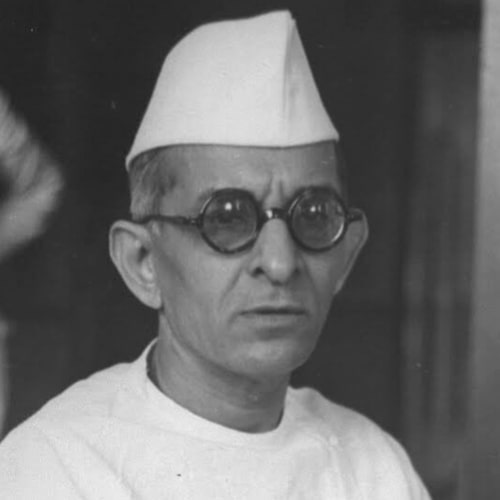Early Life:
K.M. Munshi was born on 30th December, 1887 in Bharuch in Gujarat. He completed his schooling in Khan Bahadur Dalal School, after which he pursued his college education in Baroda College. He was particularly drawn by the views of Sri Aurobindo Ghosh who was his teacher in the Baroda College. In the year 1907, he moved to Bombay to practice law and to complete his L.L.B and B.A examinations. Along with his legal practise he also started writing histrorical fiction and had many novels under his name.
After completing his studies, Munshi dove into social reform and activism, especially in the areas of women’s rights and caste prejudice. He went on to join the Indian National Congress in 1916, after which he became a member of the subjects committee and also functioned as the secretary of the Bombay Presidency Association.
Munshi also founded the Bhartiya Vidya Bhavan in the year 1938 with an aim to preserve Indian culture, education and art from a secular perspective.
Role in India’s Independence Movement:
Munshi was an active participant in the freedom struggle. He extended legal counsel to a number of freedom fighters who were detained by the British, and also participated in the Bardoli Satyagraha, Salt Satyagraha and the Quit India movement.
Contribution to Constitution Making:
Munshi was elected to the Constituent Assembly from Bombay on a Congress Party ticket. He was one of the most active members of the Assembly, being a member of 16 committees and sub-committees including the Drafting Committee. Some of his interventions were in the debates relating the fundamental rights, citizenship, and minority rights.
Later Contributions:
After Independence he served as the Minister for Agriculture and Food till the year 1953. During his tenure as an agriculture minister he conceptualized the Van Mahotsav initiative to increase the forest cover in the country. He served as the Governor of Uttar Pradesh from 1953 to 1957.
In 1954 he started a monthly journal called ‘Bhargava’ in Gujarati and also started the journal of Bhartiya Vidya Bhavan that is run to this day.
Munshi died on 8 February 1971 at the age of 83 in Bombay, India.
Key Writings:
K.M Munshi was a prolific writer and had written many pieces mostly revolving around the Indian independence movement, Gandhian ideology, Indian culture, and mythology. These included texts such as Pilgrimage to Freedom : Indian Constitutional documents, Bhagavad Gita and Modern Life, I follow Mahatma Gandhi, The ruin that Britain Wrought, Jay Somnath, Prithvivallabh, Maari Kamala, Patan ni Prabhuta, Gujarat no Nath, Rajadhiraj and Akhand Hindustan.
- Munshi actively expressed his views in favour of adopting a democratic basis for citizenship laws.
- He also expressed his views regarding the amendments moved by various members on educational rights of minorities, and the educational policy of such institutions.
- He supported an amendment that ensured the independence of the Election Commission, while at the same time acknowledging the fact that it “must remain to a large extent an ally of the Government”, and cannot be allowed to assume the status of a “Super-Government.”
- He argued in the favour of extending the power to issue writs to all the High courts in India.

